From Bonding to Independence: Why Traditional Kids Summer Camps Win Every Time
Summer camps have long been a cherished tradition for children worldwide. However, with the rise of specialized camps and digital distractions, the allure of traditional kids’ summer camps might seem outdated. But contrary to popular belief, these classic camps offer a wealth of benefits that modern alternatives simply can’t match.
A. Benefits of Traditional Kids Summer Camps
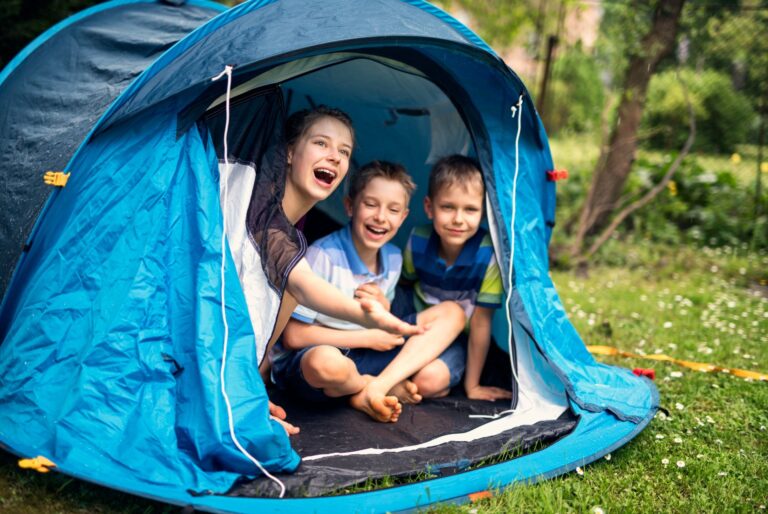
Social Skills Development
One of the primary advantages of traditional summer camps is their unmatched ability to foster social skills in children. Removed from the familiar surroundings of home, campers are encouraged to interact with peers from diverse backgrounds. Through shared activities like group games, campfires, and bunkmate bonding, children learn valuable communication, teamwork, and conflict-resolution skills.
Physical Activity
In an era dominated by screens, traditional camps provide a refreshing break by prioritizing outdoor adventures and physical play. From swimming and hiking to sports and obstacle courses, campers engage in a wide range of activities that promote health, fitness, and a love for the great outdoors.

Unplugging from Technology
With the constant buzz of smartphones and tablets, children often struggle to disconnect from the digital world. Traditional camps offer a welcome reprieve by enforcing technology-free environments. Freed from screens, campers can fully immerse themselves in nature, forging deeper connections with their surroundings and fellow campers.
B. Learning Independence
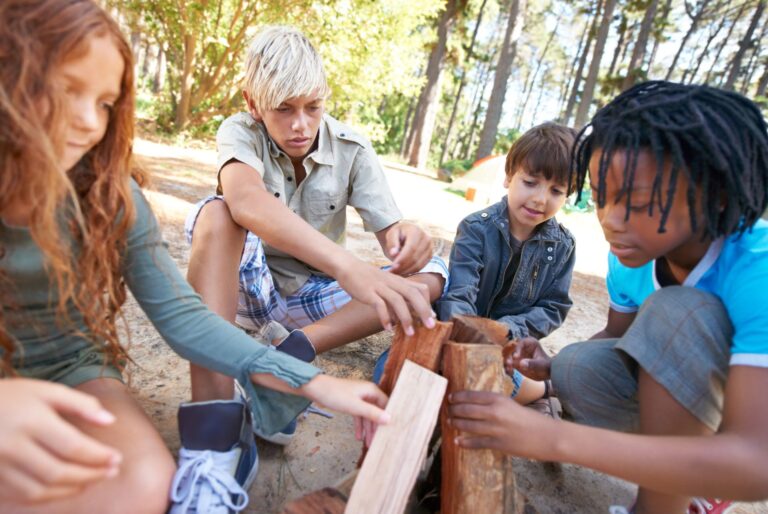
Away from Parents
For many children, summer camp represents their first taste of independence. Away from the watchful eyes of parents, campers are empowered to make decisions, solve problems, and navigate challenges on their own. This newfound autonomy fosters confidence and self-reliance, laying the foundation for future success.
Decision Making
From choosing daily activities to managing personal responsibilities, campers are encouraged to take ownership of their camp experience. Whether it’s picking their next adventure or resolving conflicts with cabin mates, children learn the importance of decision-making and accountability in a supportive and nurturing environment.
C. Bonding with Peers
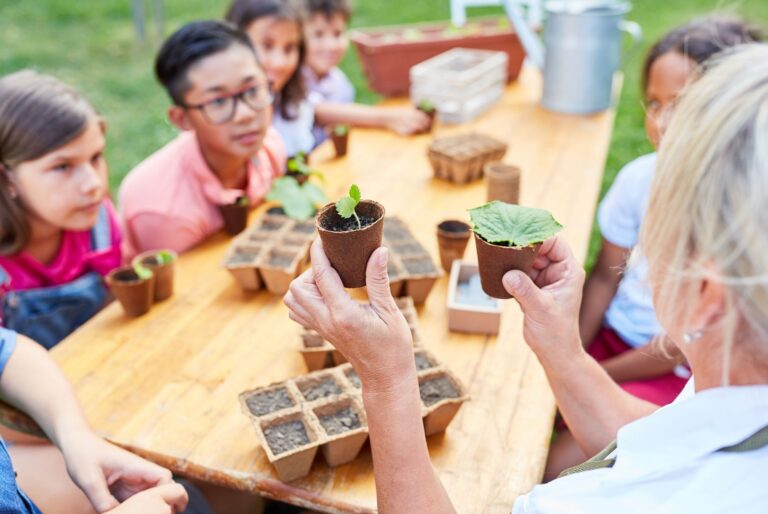
Shared Experiences
Traditional summer camps provide the perfect setting for forging lifelong friendships. Through shared experiences like late-night chats, campfire stories, and team-building exercises, campers form deep bonds with their peers that transcend the confines of the campgrounds.
Building Lifelong Friendships
In the digital age, face-to-face interactions are increasingly rare. Traditional camps offer a rare opportunity for children to connect authentically with others, building friendships based on shared experiences, trust, and camaraderie. These bonds often endure long after the summer ends, providing a valuable support network for years to come.
D. Nurturing Creativity
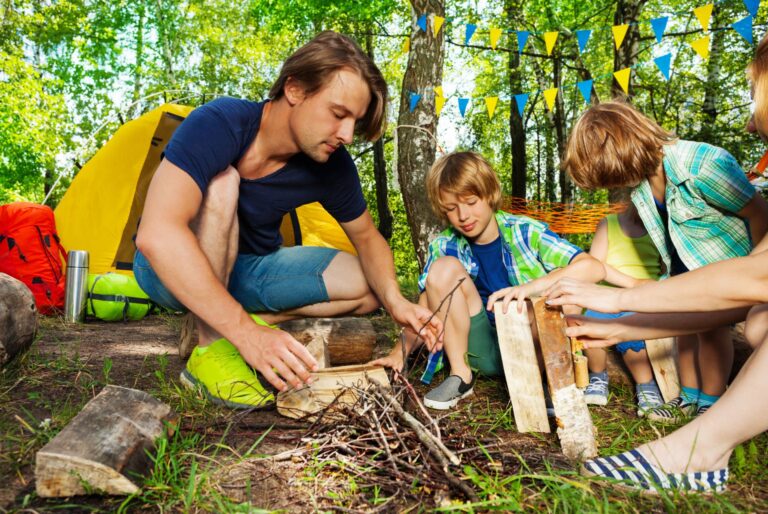
Outdoor Exploration
Nature serves as the ultimate playground for sparking creativity and imagination. Traditional camps encourage campers to explore their natural surroundings, whether it’s hiking through the woods, crafting in the open air, or stargazing under the night sky. These immersive experiences inspire creativity and curiosity, fostering a lifelong appreciation for the environment.
Arts and Crafts
From painting and pottery to woodworking and weaving, traditional camps offer a diverse array of creative outlets for campers to explore. Whether they’re honing existing skills or discovering new passions, children are encouraged to express themselves through art, fostering self-confidence and a sense of accomplishment.
E. Building Confidence
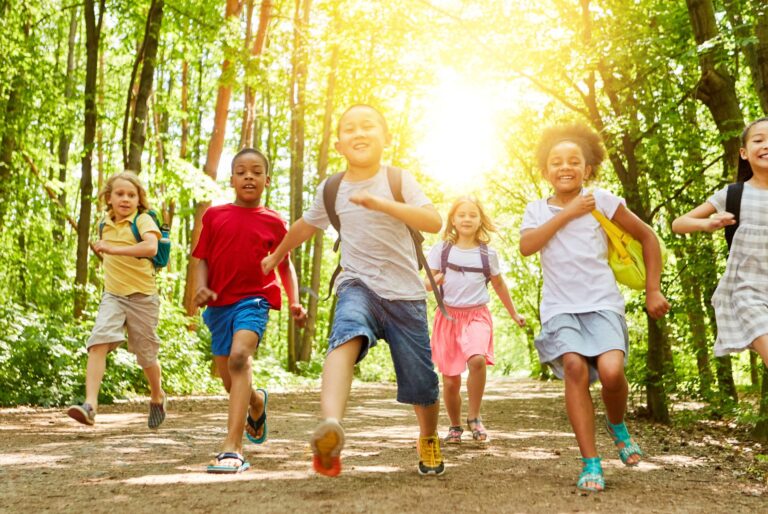
Trying New Things
Summer camp is a safe space for children to step outside their comfort zones and try new things. Whether it’s conquering a fear of heights on the ropes course or performing in front of their peers at talent night, campers are encouraged to embrace challenges and push their limits, building resilience and confidence in the process.
Overcoming Challenges
Life is full of obstacles, and summer camp provides the perfect training ground for overcoming them. From navigating obstacle courses to working through disagreements with cabin mates, children learn valuable problem-solving skills that will serve them well in all areas of life.
F. Safety and Supervision
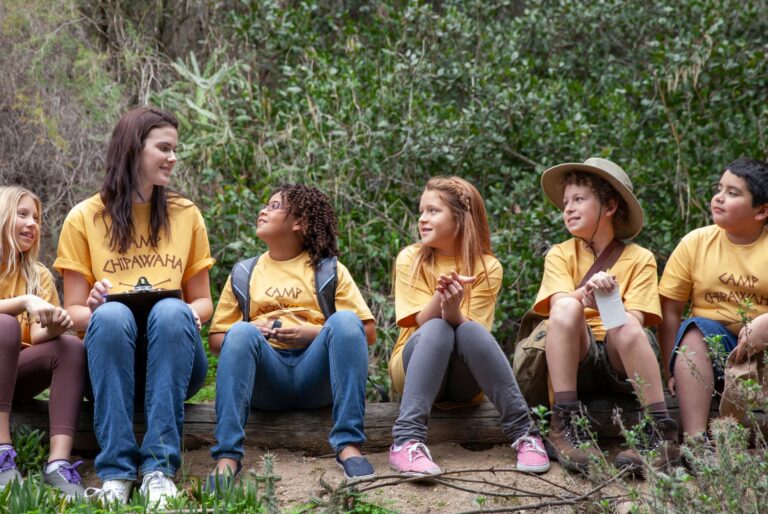
Trained Staff
Parents can rest easy knowing that their children are in good hands at traditional summer camps. With trained counselors and staff members overseeing activities and ensuring the well-being of campers, safety is always a top priority.
Emergency Protocols
In the unlikely event of an emergency, traditional camps are well-equipped to handle any situation. From first aid-trained staff to established emergency protocols, camps prioritize the safety and security of all campers, providing parents with peace of mind.
Conclusion
While modern alternatives may offer flashy amenities and specialized programs, traditional kids summer camps remain the gold standard for a reason. From fostering social skills and independence to nurturing creativity and building confidence, these timeless institutions provide a transformative experience that simply can’t be replicated elsewhere.



